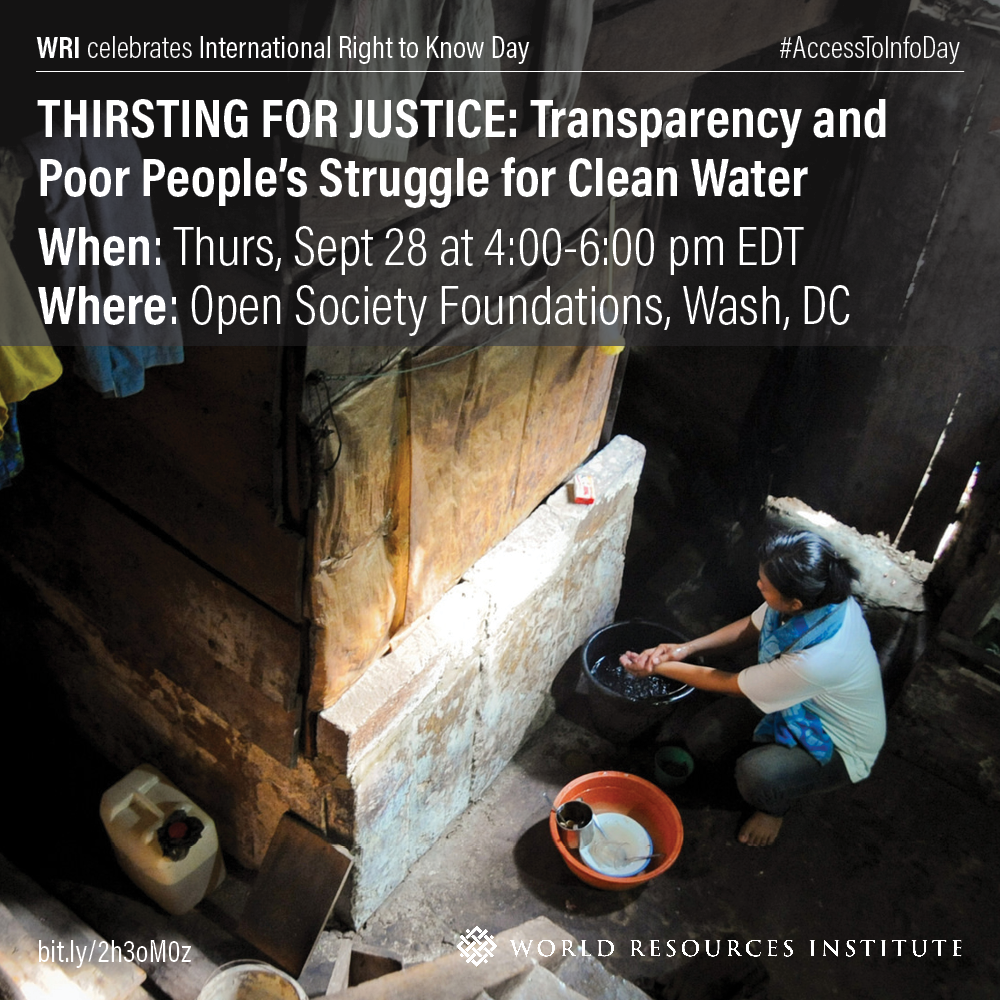Do you know what’s in your water? Join Open Society Foundations and World Resources Institute on International Right to Know Day as they spotlight a new report on access to water pollution information in Asia.
Industrial facilities release upwards of 400 million tons of toxic pollutants into the world’s waters each year. This contaminated wastewater threatens poor communities around the world—those who still depend on local water sources for their lives and livelihoods. Yet secrecy around the amount and type of chemicals that companies discharge is still the norm. Without access to water pollution information, these communities cannot determine whether their water is safe to drink, fish or give to their animals. They can’t participate in decision-making, hold law-breaking polluters to account or lead local cleanup efforts.
On International Right to Know Day, Open Society Foundations will spotlight a new World Resources Institute report, Thirsting for Justice: Transparency and Poor People’s Struggle for Clean Water in Indonesia, Mongolia, and Thailand. It uncovers why many poor, marginalized communities in Asia still don’t know if their water is safe to use despite their governments passing strong “right to know” laws.
Join environmental democracy experts, civil society leaders and advocates fighting to improve access to water pollution information for a discussion on this environmental injustice and the steps that governments, civil society and people around the world can take to resolve it.
Speakers
LeeAnne Walters, Clean Water Advocate and Citizen Scientist, Flint, Michigan
Carole Excell, Acting Director, Environmental Democracy Practice, World Resources Institute
César Gamboa, Executive Director, Derecho, Ambiente y Recursos Naturales
Oyuna Jukov, Consultant, Open Society Forum—Mongolia
Moderated by Kizito Byenkya, Senior Program Specialist, Human Rights Initiative,Open Society Foundations
